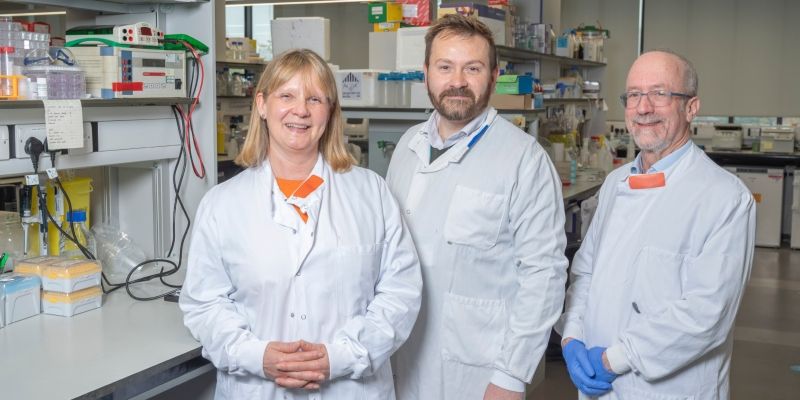
Almost £3 million in funding for new radiotherapy treatments and technologies has been granted to the University of Leeds by Cancer Research UK.
Over the next five years, the Cancer Research UK (CRUK) Leeds Radiation Research Centre of Excellence (RadNet Leeds) will receive £2.94 million from the charity.
This comes alongside a further £5.6 million in leveraged funding from the University of Leeds Teaching Hospitals NHS Trust, as well as local charities and industry partners.
Personalising tumour treatment
The funding will allow Radnet Leeds to continue its research into and innovation in radiotherapy.
Led by Leeds’ Professor David Sebag-Montefiore, a multidisciplinary team from the university and Leeds Teaching Hospitals NHS Trust will seek to improve the understanding of how radiation affects cancer cells.
This will enable scientists to more accurately predict which tumours will respond to radiotherapy, and which will be resistant – personalising treatment to the patient and their tumour.
Professor Sebag-Montefiore, Audrey and Stanley Burton Professor of Oncology and Director of RadNet Leeds, said: “Our interdisciplinary research teams will develop and translate smarter, kinder radiotherapy treatments across a broad range of cancers to replace the need for major surgery and a colostomy bag, provide shorter courses of treatment with less side effects and tailor the choice of treatment.
“Our renewed CRUK funding will help bring forward the day when we can deliver a truly personalised approach so that we can say to future patients ‘this is the right radiotherapy dose, the right number of treatments and the best technology to give you the highest chance of a successful outcome’”.
Radiotherapy response and resistance
During the first five years of its funding by CRUK, RadNet Leeds became an international hub for re-irradiation; contributed to the funding of five innovative clinical trials; established a remote learning platform for rare cancers; and provided enhanced research and patient access to MRI scanner-guided radiotherapy.
RadNet Leeds’ plans for the next five years include research into the biological understanding of radiotherapy response and resistance; personalised radiotherapy, re-irradiation; treating areas close to the initial disease site where cancer has recurred; and understanding why radiotherapy works for some patients but not others.
Work will focus on rarer tumours which do not have as many treatment options, including brain and liver cancers; and disease areas including anal, rectal and prostate cancer.
Using artificial intelligence, the team will be able to safely look at complicated patient data across Europe to learn more about which patients will benefit most from radiotherapy and how to target radiotherapy better, allowing them to choose the best treatment with the fewest side effects.
Improving patient outcomes
Professor Shearer West CBE, vice-chancellor and president of the University of Leeds, said: “Leeds scientists are leading efforts to develop novel patient-focused, radiotherapy research. This investment will enable our researchers to continue their work to improve the lives of cancer patients across the city, the region and the world through more precise and targeted treatments.
“Cancer research at Leeds is focused on improving patient outcomes, and RadNet exemplifies health innovation achieved through pioneering techniques, groundbreaking research and collaboration in Leeds.”
(RadNet Leeds deputy director Professor Ann Henry, discovery lead Professor Andrew Macdonald and director Professor David Sebag-Montefiore, via University of Leeds)
